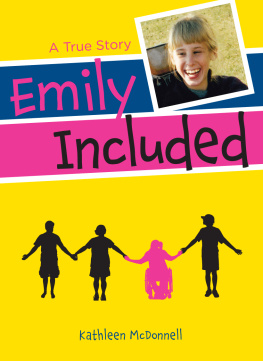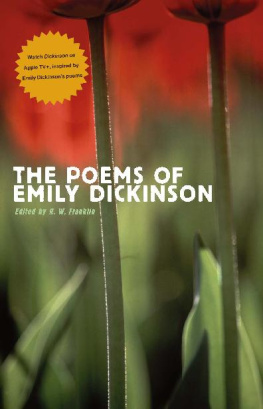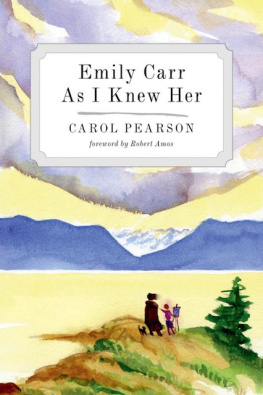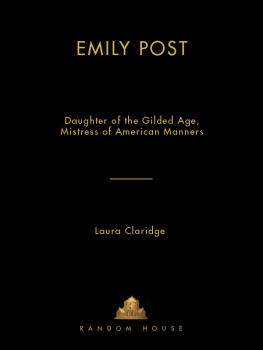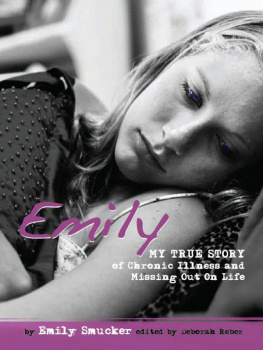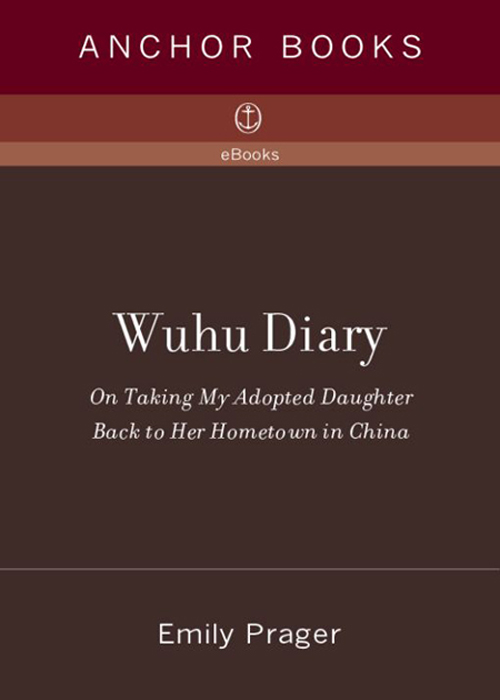
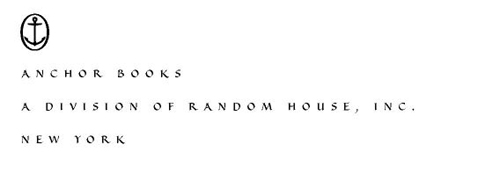
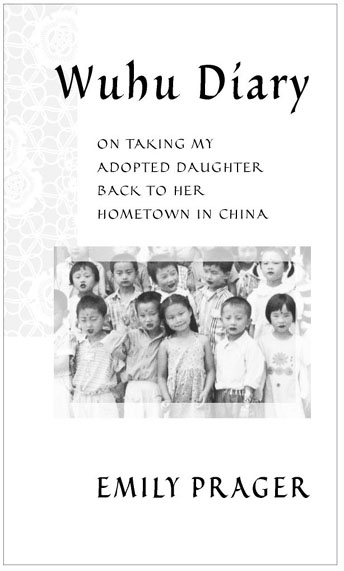
Table of Contents
This book is dedicated to my father,
who introduced me to China;
to my daughter, who made me love it
even more than I thought possible;
and to Robert Loomis, who has always
let me write about what I love.
April 30, 1999 Narita Airport, Tokyo
We are close to China now and I can feel it. China, guardian of my memories, nurturer of my spirit. This time, I am taking LuLu, my Chinese daughter, there and I am so excited I can hardly breathe. Going to China always affects me this way. Even though I spent my childhood in Taiwan, China is China to me no matter who rules it. It is a matter of people, trees, birds, smells, and earth, not politics.
This is a roots trip for LuLu. I am taking her back to her hometown of Wuhu, in the province of Anhui in southern China. I adopted her on December 12, 1994, at the Anhui Hotel in the provincial capital city of Hefei. She was seven months old then; now she is almost five. She is my daughter now and I am her mother, but then we were just starting out.
It will be a first for me, too, for I have never seen Wuhu, though I am connected to it now by bonds almost as strong as hers.
Somewhere in that city I have never seen, my child was born and put out on the street in her first three days of life. It was near a police station. The police took her in and brought her to the local orphanage, where she was assigned to me, a single woman writer living in Greenwich Village on the other side of the earth. Thats basically all we know, what is on her documents. That and what her mother wrote in her note:
This is a girl. Her Western birthday is June 8. Her lunar birthday is April 29, nighttime, at the hour of 11:30 P.M.
The birth date was computed according to both Chinese and Western calendars. Perhaps her first mother hoped she would be adopted to the West.
I consider this note in her first mothers handwriting to be almost magical. It is Lus and my only link to the people who created her, that and the genes she carries. We know they were musical. They were expansive. They had great, strong voices, lovely long legs, and remarkable hands. They were eternally cheerful, smart, and good-looking. They had wills of iron and were awfully good-hearted.
It must have been so wrenching for them to leave her. I thought I knew this when I went to China to get her, but it wasnt until I opened the hotel room door and saw her that I truly understood.
I have to confess: I hadnt liked the tiny, two-inch-square photo of her that the adoption ministry sent me after they approved my documents and assigned her to me. She looked kind of thuggish in the picture, and I didnt take to it. But it made me understand that what I was doing was not a fantasy, that I had to be ready to love whatever person came my way, that that was the contract I was making. And I made peace with the photo and carried it proudly in my wallet.
The adoption was arranged through the Spence-Chapin adoption agency. It was like this: after a great deal of paperwork, a group of peoplenine couples and two other single women besides myselfcame from America together to a hotel in Hefei to embark on the most important journey of our lives. The day we arrived, I was in my room waiting. The babies were meant to come at two. It was noon.
The phone rang. Xiong Yan, the Chinese woman who had facilitated the adoptions in China, said joyously, Would you like to meet your baby? What a question. I was so thrilled, I could hardly move.
Oh, yes, I gasped, and put the phone down.
I wasnt ready. I didnt have formula made. I hadnt even read the instructions on the can yet to learn how to do it. I had taken a three-hour course in infant care at Southampton Hospital in Long Island, and that was all I knew about babies. I ran around the room aimlessly, frantically, trying not to have a heart attack, laughing, jumping. Out in the hall I heard baby sounds and then there was a knock at the door.
Im sure you will understand that opening that door was the most incredible experience. I was about to meet the person I would be responsible for for the rest of my life. I was about to have a baby. I took a deep breath and, as I am wont to do, I plunged in and quickly opened the door.
Which brings me back to the heart-wrenching deed of my in-law (as I think of her), who gave birth to LuLu. Because there before me was a truly lovely-looking baby girl, nothing like the picture, flawless, with red, red cheeks, staring at me with black, sparkling, mischievous eyes.
Her nurse, an older woman, raised the tiny creature up by her shoulders and bent her over in a little bow, whereupon LuLufor that was the name she came withbroke into the most adorable, grand smile of hello at me. We fell instantly in love and have remained so ever since.
When I examined my child later, I felt a spasm of anguish for the woman who had had to leave her. Did it hurt her forever or did she put the baby down and never look back? I will probably never know.
And I will probably never know what made her do it. It could have been terrible poverty or conception out of wedlock that led her first mother to seal Lus fate, or it could have been Chinas one-child policy.
In 1994, the governmental population decree of the Peoples Republic of China was still stringently enforced. Couples were allowed one child in the city, two in the country. LuLu and the girls in her group were quite probably second children, born to farming families who already had one girl and were hoping for a boy. Secondness, evidently, accounted for their physical strength as well as their destiny.
This is one of the reasons we are going to Wuhu: to see if there is anything in her orphanage file that we do not know; to see what shreds we can gather about LuLus beginnings. It has been only four years. Perhaps someone remembers something.
When we approach the Narita lounge for the connecting flight to China, everyone waiting there is Chinese. Most are men, and suddenly they all look up, almost as one, and stare at us. I quickly bend down and advise LuLu that in China, large groups of people do have this tendency to gather and stare and it is merely curiosity, in reply to which we should smile.
I flash back to a street in Taipei in 1959. My friend Robin and I are waiting for a car to take us to the Grand Hotel swimming pool. We are both seven, daughters of U.S. Air Force and Army officers. She has flame-red hair. A large crowd of Chinese people has gathered around and stands staring at us, silent and expressionless. We hate it when this happens, because we dont know what these adults want. Robin shouts heatedly at the crowd, which embarrasses me.
In 1979, when my boyfriend and I journeyed to Beijing, a huge crowd followed us everywhere we went. We were among the youngest visitors to the newly opened republic and people were fascinated by us. We were in our early twenties.
But its not as if the Caucasian mother and Chinese child arent used to being stared at. On the New York subway or in the supermarket, we are oddities or celebrities, depending on the day.
LuLu has been staring back at those staring at her. She turns to me and grins. I dont see my world, Mom, she says, and she scampers off into the midst of her countrymen and soon finds a kind Chinese man in his forties who will play with her.
Next page

